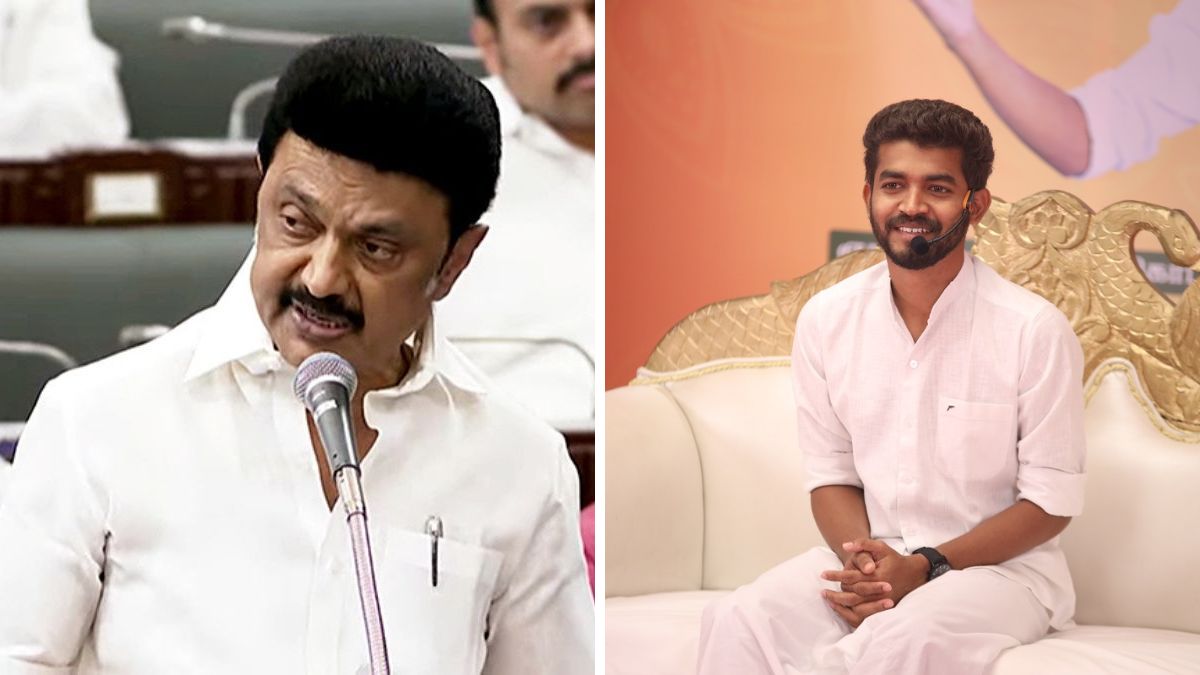The incident at the Mylapore government school in Chennai, where a motivational speaker, Mahavishnu, deviated from the expected theme of Teachers Day and instead delivered a lecture about karma, rebirth, and the British destruction of ancient Indian knowledge systems, sparked a heated debate across Tamil Nadu. The controversy highlights a sensitive issue: the influence of religious and spiritual discourse in educational institutions and the need for clear guidelines to prevent such incidents.
The Controversy: Religious Discourse in a Secular Setting
The controversy centers around Mahavishnu’s deviation from the agreed-upon topic. He was invited to motivate students on Teachers Day, a celebration of educators and their role in fostering learning. However, he instead chose to address themes of karma and rebirth, asserting that current life circumstances are a consequence of actions in past lives. This approach sparked criticism from parents, educators, and politicians.
Concerns Raised:
- Lack of Scientific Approach: Critics argued that Mahavishnu’s teachings lacked scientific backing and potentially propagated misinformation, contradicting the principles of a secular education system. They feared that such beliefs could instill superstition and undermine critical thinking skills in children.
- Indoctrination Concerns: The nature of the talk raised concerns about potential indoctrination. The speaker’s pronouncements on past lives and divine intervention were viewed as a form of religious persuasion rather than a motivational message for students.
- Violation of Secularism: The Tamil Nadu government strongly advocated for scientific thinking and condemned Mahavishnu’s actions, viewing them as a breach of secular principles. This incident underscores the importance of safeguarding secularism in public institutions, particularly within the education system.
The School’s Perspective and Responses
The incident placed the school administration in a difficult position. The decision to invite Mahavishnu to speak to the students in the first place has raised questions about due diligence and oversight. The school was criticized for failing to establish clear guidelines for the guest speaker, resulting in a situation where potentially inappropriate and divisive topics were introduced to young minds.
The School’s Response:
- Lack of Guidelines: The controversy highlighted the lack of defined guidelines for guest speakers at government schools. It has prompted a call for standardized procedures to ensure speakers adhere to the curriculum’s objectives and avoid promoting any form of religious or political bias.
- Accountability: The school authorities faced criticism for failing to monitor the speaker’s content and address concerns raised by staff members. This calls for accountability within educational institutions and a clear mechanism for addressing violations of established rules and ethical standards.
- Educational Impact: The incident raised concerns about the impact on students who may have been exposed to religious teachings and potentially influenced by the speaker’s views on karma, rebirth, and the historical narratives presented.
Government Response and Implications for Educational Policies
The Tamil Nadu government, led by Chief Minister MK Stalin, has taken a strong stance against the incident, advocating for a purely scientific approach in education. The government has announced plans to implement comprehensive guidelines for programs in schools to ensure that all students receive progressive and scientific education. This decision highlights the need for a clear policy framework to regulate events, speakers, and content introduced within the school system.
Policy Recommendations:
- Curricular Alignment: The incident underscores the importance of curriculum alignment and the need for comprehensive educational policies that explicitly define acceptable topics and approaches for guest speakers and other programs.
- Guest Speaker Vetting: The government is likely to introduce stricter vetting procedures for guest speakers, emphasizing their qualifications and aligning their topics with the educational objectives.
- Parental Rights and Awareness: The incident emphasizes the need to engage parents and inform them about any special events, speakers, or programs involving their children.
The Future of Education in Tamil Nadu
The Chennai Mahavishnu controversy serves as a turning point for education policy in Tamil Nadu. The government is committed to fostering a progressive and scientific approach to education, while simultaneously emphasizing the importance of secularism. This focus on scientific thinking and ethical considerations is essential for ensuring a quality education that equips students with the skills and knowledge necessary to thrive in a complex and rapidly evolving world.
Take Away Points
- The incident serves as a reminder of the importance of ensuring that all programs and events within schools align with the principles of secularism, educational objectives, and scientific thinking.
- The Tamil Nadu government’s response reflects the commitment to progressive and scientific education, highlighting the need for comprehensive educational policies and clear guidelines for all stakeholders.
- The controversy reinforces the significance of parental involvement and the need to engage parents actively in the educational process, ensuring that they are informed about events and content introduced in schools.
- The future of education in Tamil Nadu is likely to involve a more robust regulatory framework and an increased focus on aligning all aspects of the school system with the principles of secularism and scientific inquiry.




